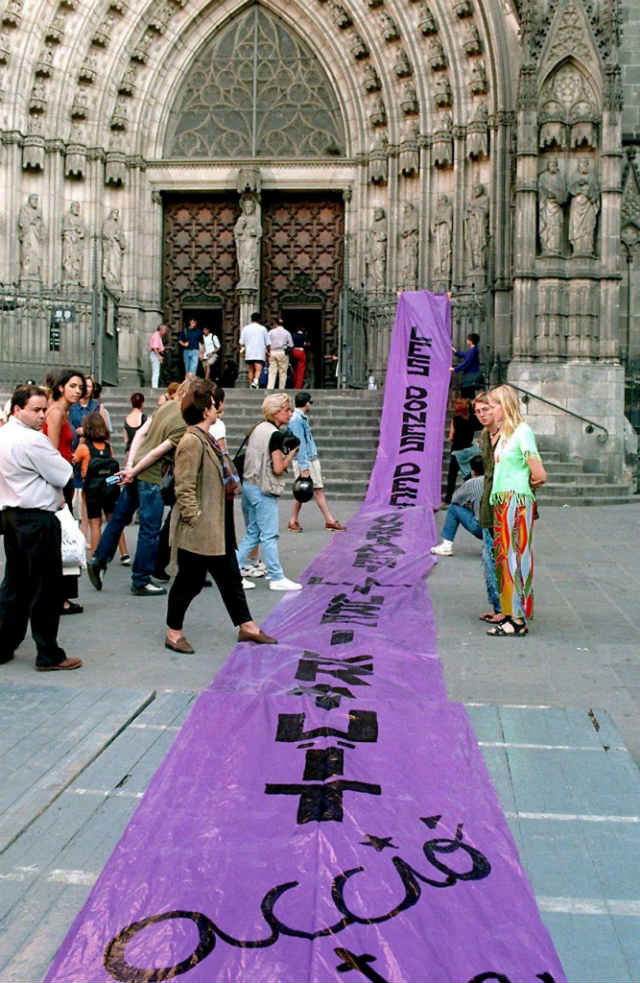SUMMARY
This is AI generated summarization, which may have errors. For context, always refer to the full article.

MADRID, Spain (UPDATE) – Spain’s government on Friday, December 20, approved a tightening of the abortion law that would overturn women’s right to abort freely up to 14 weeks of pregnancy, ministers said.
The government adopted a draft bill for a law which would allow abortion only in cases of rape or a threat to the mother’s health, Justice Minister Alberto Ruiz-Gallardon told a news conference.
The discussions prior to the state approval caused outrage among pro-choice campaigners who warned of a return to the 1980s, when women had to go abroad to end unwanted pregnancies.
The government has not revealed details but has indicated it will roll back the previous Socialist government’s 2010 reform, which gives women the right to abortion on demand up to 14 weeks of pregnancy.
That reform also allows women the legal right to abort up to the 22nd week of pregnancy in cases where the mother’s health is at risk or the fetus shows major deformities.
Under the previous 1985 law, abortion was a crime in Spain except in cases of rape, risk to the mother’s health or deformation of the fetus.
Justice Minister Alberto Gallardon has indicated he wants to return to something similar to the 1985 law, but also possibly go further, curbing abortions in cases of deformation.
He has also said he wants to oblige girls under 18 to seek their parents’ consent to have abortions.
Prime Minister Mariano Rajoy’s conservative government presented the divisive draft reform at Friday’s cabinet meeting, Interior Minister Jorge Fernandez Diaz said, as pro-choice groups and political opponents called for nationwide protests.
The deputy leader of the main opposition Socialist Party, Elena Valenciano, said defenders of abortion rights will “mobilize society against what is going to be an incomprehensible reduction in women’s freedom.”
“It is going to happen more to women with economic difficulties than to rich women, who as usual will be able to go abroad to abort,” she told Cadena Ser radio on Friday.
“In this respect we are going to resemble the Spain of 30 years ago.”
The planned changes could mean the roughly 3,000 women who have abortions in Spain each year due to a deformed fetus would be left in “a state of helplessness,” said Luis Enrique Sanchez, the head of Spain’s Planned Parenthood Federation.
“It would put these women in a dramatic situation that would create much pain and suffering,” he said in a meeting with foreign journalists in Madrid.
Angering the Church
After promising in its 2011 election campaign to “reinforce protection of the right to life,” Rajoy’s government has repeatedly postponed changes to the legislation as it reportedly struggled with internal dissent, angering the Roman Catholic Church hierarchy.
In April 2013, the head of Spain’s Catholic Church, Cardinal Antonio Maria Rouco Varela, called for an “urgent reform” of the 2010 law, which he said had “led to a rise in the number of abortions to terrifying levels.”
Sanchez said there had not been a significant rise in abortions and that there were even signs of a downward tendency.
Abortions in the Madrid region in 2012 fell by 765 to 23,683, according to the Madrid regional government.
The national health ministry said however that 118,359 abortions were carried out in Spain in 2011, up from 113,031 the previous year.
Valenciano called an emergency party meeting for Friday and vowed to fight the change.
Women’s groups called for protests on Friday outside the prime minister’s Moncloa Palace offices and in other cities around the country.
The anti-abortion Right to Life said its members too would gather outside the Moncloa while they waited for news of the reform.
A study by pollster Metroscopia published in April in center-left newspaper El Pais indicated that 46% of Spaniards favored keeping the law in its current form while 41% wanted a stricter system such as that planned by Gallardon.
The 2010 law was one of a series of liberal social reforms by the then Socialist government which also included legalizing gay marriages.
Whatever the details of the new bill, it is likely to pass easily through parliament where Rajoy’s Popular Party holds a strong majority. – Rappler.com
Add a comment
How does this make you feel?
There are no comments yet. Add your comment to start the conversation.